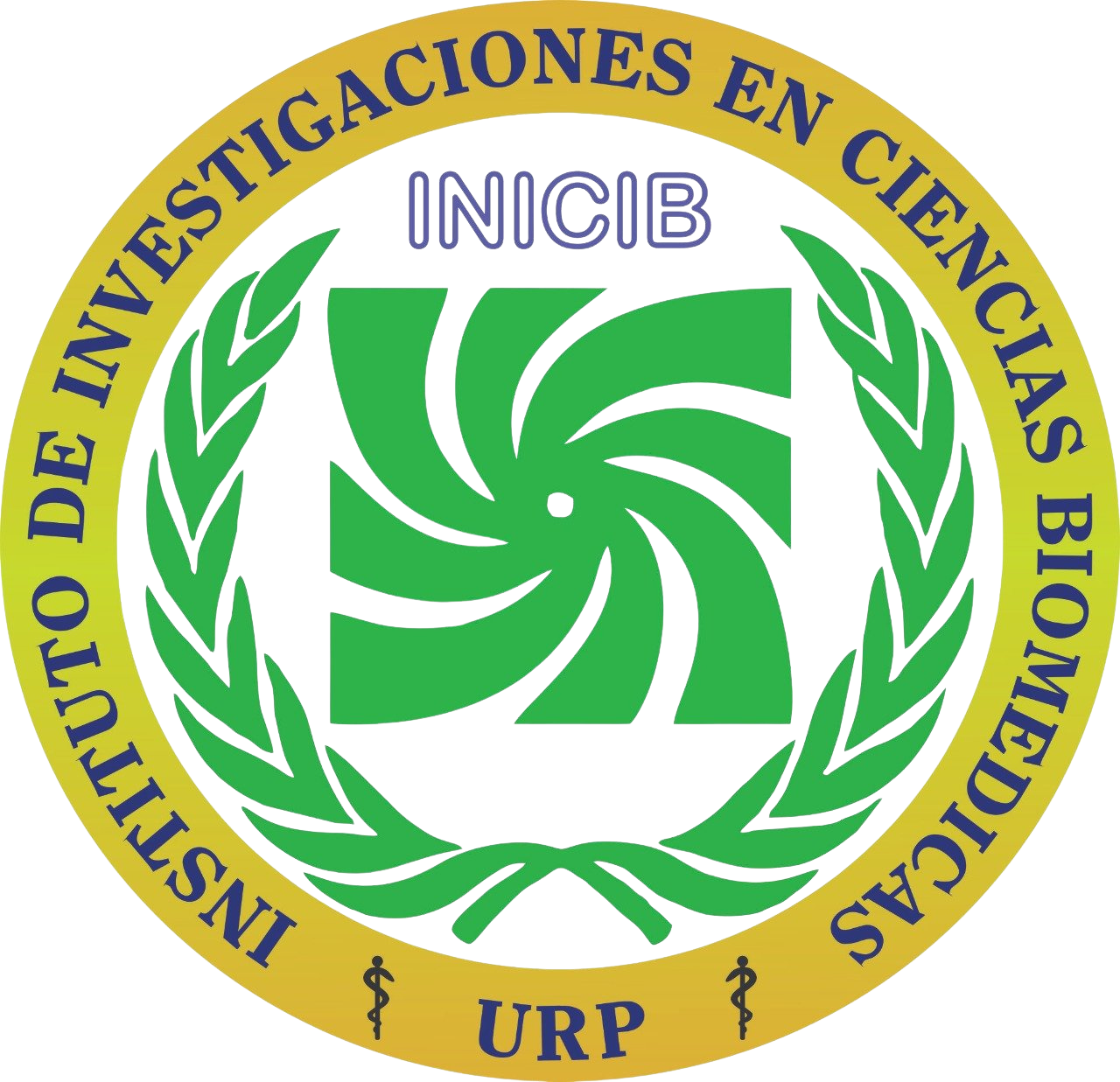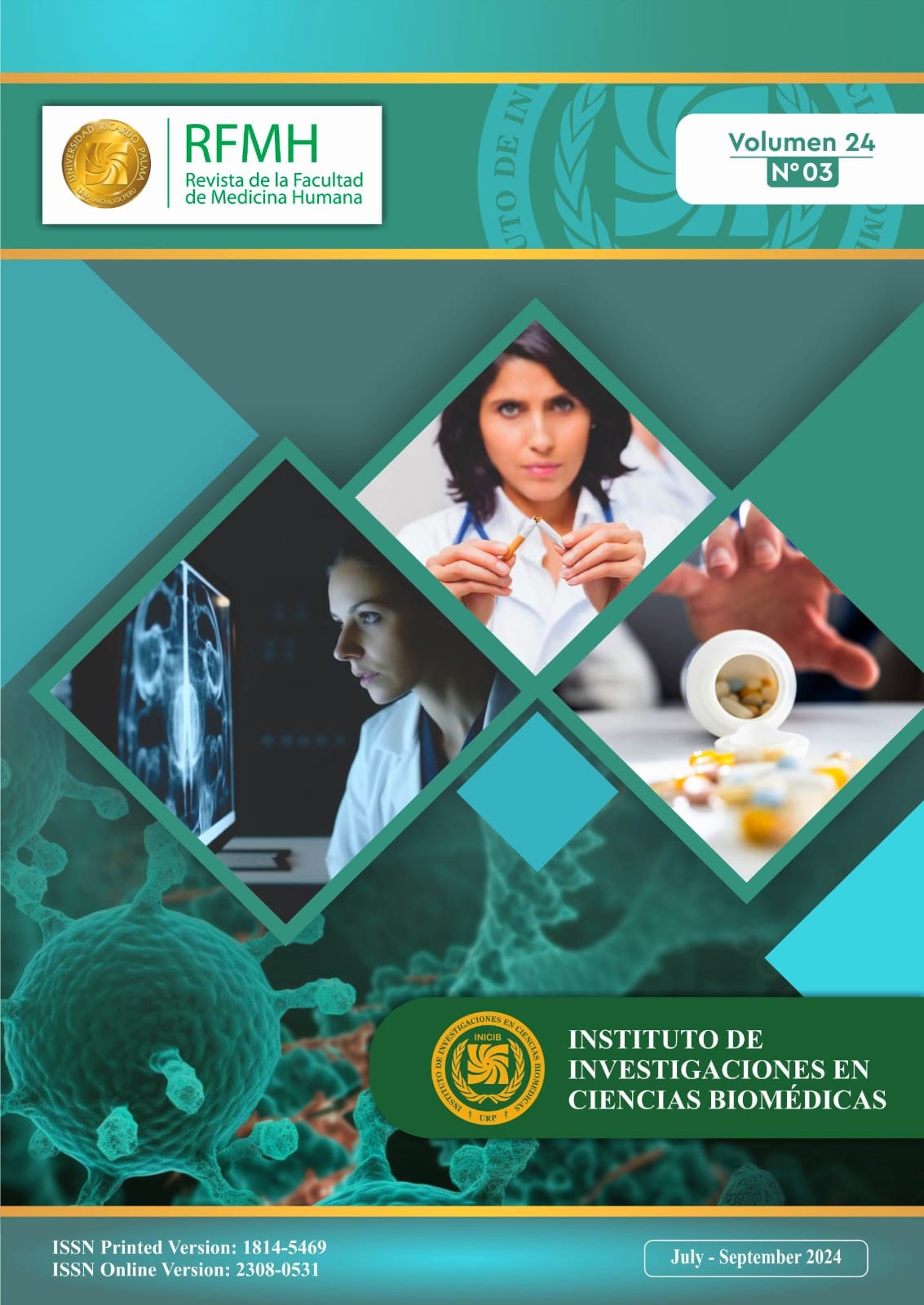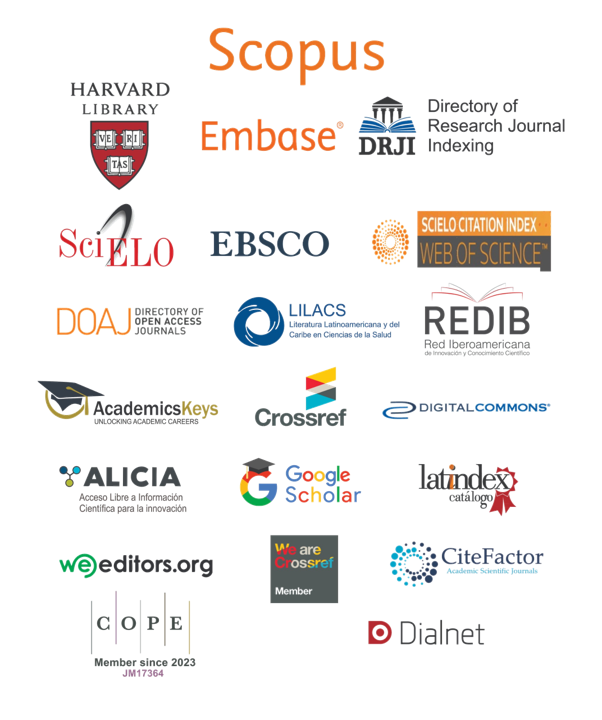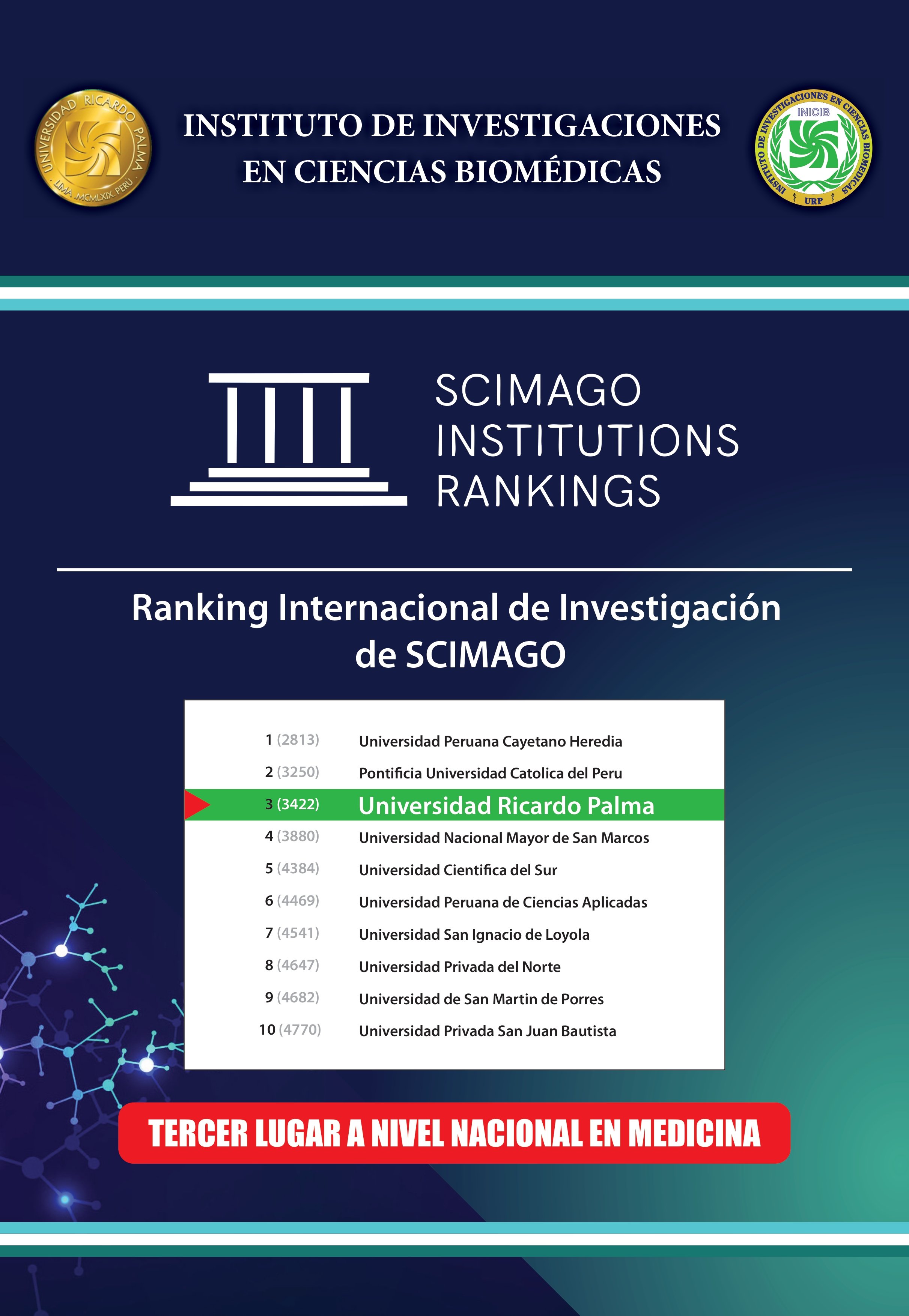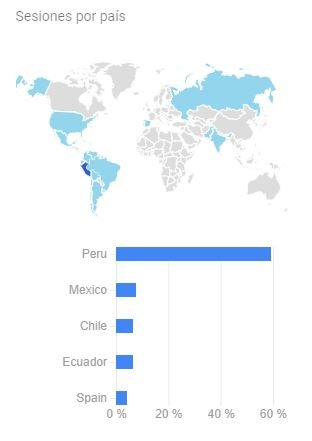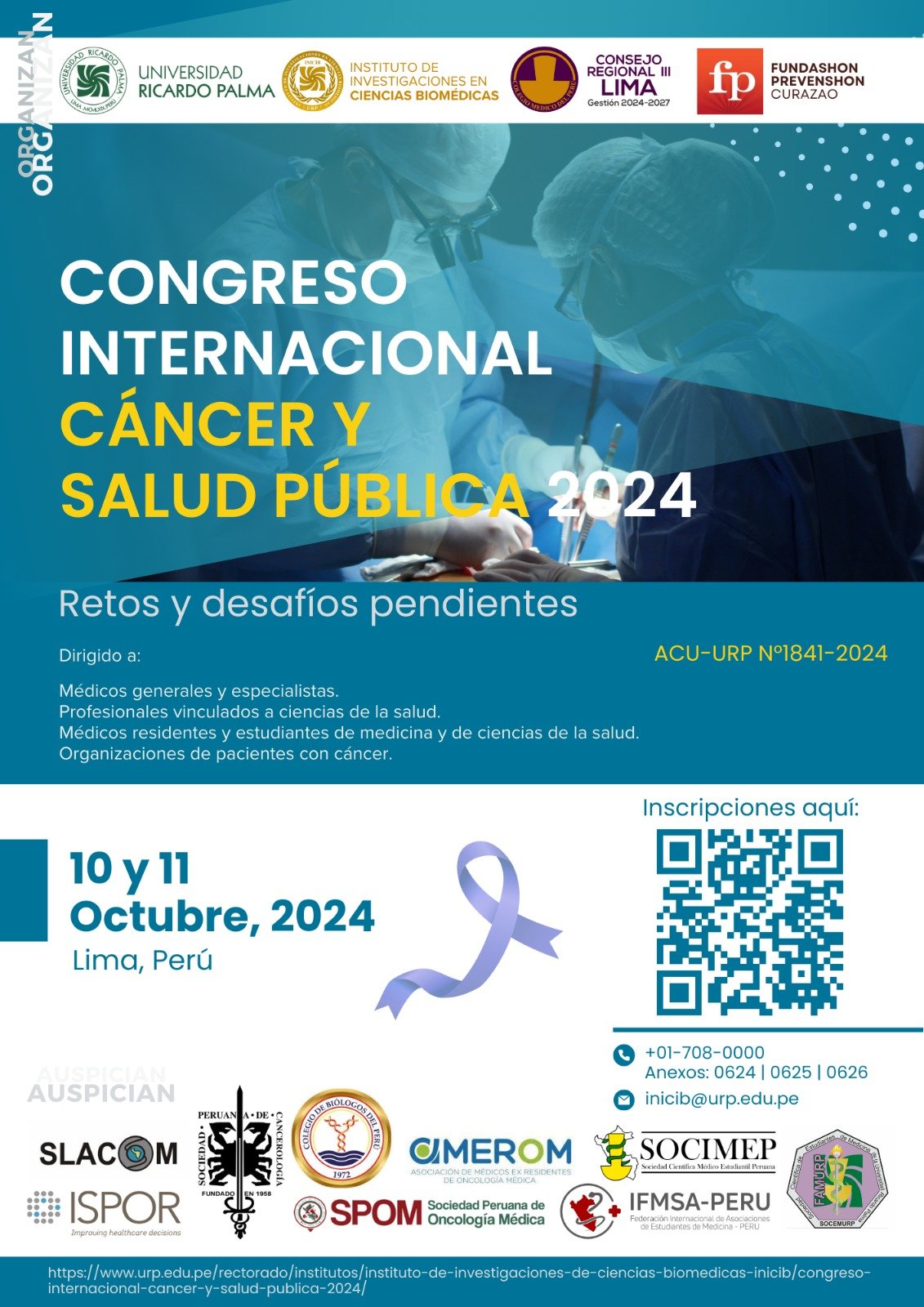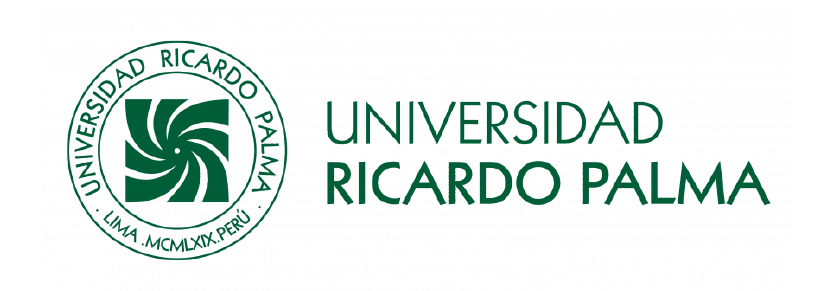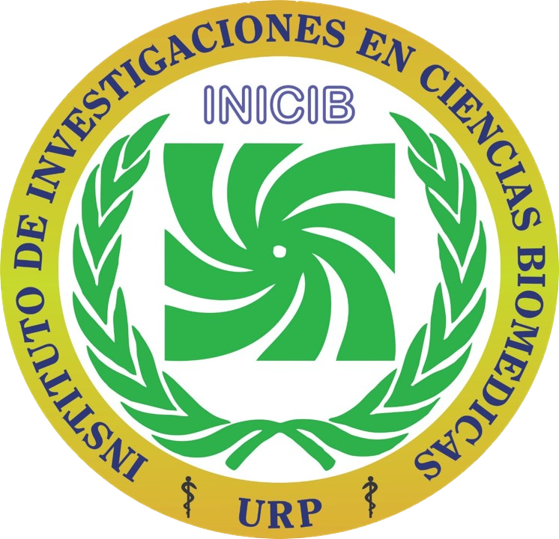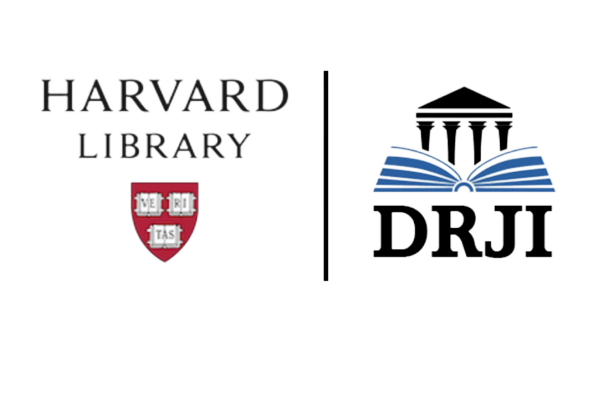Inteligencia emocional y estrategias de afrontamiento al estrés en personal de salud.
Emotional intelligence and stress coping strategies in health care workers.
DOI:
https://doi.org/10.25176/RFMH.v23i3.5659Palabras clave:
Inteligencia emocional, afrontamiento, estrés, personal asistencialResumen
Objetivo: Determinar la relación entre inteligencia emocional y las estrategias de afrontamiento al estrés en trabajadores asistenciales de un Hospital de Tercer Nivel de Atención durante el 2021.
Material y métodos: Se realizó un estudio transversal analítico. Se utilizo dos encuestas el test de COPE el cual mide como afrontar el estrés y el Inventario de Coeficiente emocional de Bar-On que mide el nivel de Inteligencia emocional. La variable principal fue el afrontamiento al estrés. La variable independiente fue la inteligencia emocional.
Resultados: Se trabajó un total de 290 trabajadores asistenciales. La inteligencia emocional se correlaciono significativamente de manera positiva (Pearson = 0.6003) con el afrontamiento al estrés. Las estrategias de afrontamiento al estrés con mayor media fueron planificación, reinterpretación positiva y crecimiento, afrontamiento religioso. Estas estrategias tuvieron una correlación positiva con la inteligencia emocional, estas correlaciones fueron 0.5271, 0.5200 y 0.2051 respectivamente. Para el análisis de regresión multiple, se observó que el promedio de puntos del Test de BARON aumento en 0.261 puntos por cada punto que incrementa el TEST de COPE (coef. = 0,261; IC95%: 0.215 - 0.307); ello ajustado por todas las covariables de interés.
Conclusión: Existe una relación entre la inteligencia emocional y el afrontamiento al estrés. También se encontró relación con las estrategias de afrontamiento al estrés.
Descargas
Citas
Houtman I, Jettinghof K, Cedillo L, Team WHOO and EH. Sensibilizando sobre el estrés laboral en los países en desarrollo: un riesgo moderno en un ambiente tradicional de trabajo: consejos para empleadores y representantes de los trabajadores [Internet]. Organización Mundial de la Salud; 2008 [citado 19 de noviembre de 2022]. Disponible en: https://apps.who.int/iris/handle/10665/43770
Cortaza Ramírez L, Francisco Torres MD. Estrés laboral en enfermeros de un hospital de Veracruz. México. Rev iberoam educ invest enferm(Internet). 2014;20–6.
admin. El 78% de los trabajadores peruanos ha tenido estrés laboral [Internet]. Recursos Humanos, el portal del Capital Humano | Guia empresas recursos humanos peru. [citado 19 de noviembre de 2022]. Disponible en: https://www.infocapitalhumano.pe/recursos-humanos/noticias-y-movidas/el-78-de-los-trabajadores-peruanos-ha-tenido-estres-laboral/
Mayer JD, Caruso DR, Salovey P. Emotional intelligence meets traditional standards for an intelligence. Intelligence. 1999;27(4):267.
Scherer KR, Ekman P. Approaches To Emotion. Psychology Press; 2014. 441 p.
Cohen RJ. Psychology & adjustment: Values, culture, and change. Allyn & Bacon; 1994.
Barreiro Ramos H, Barreiro Peñaranda A, Quesada Soto Z, Fernández Viera E, Marrero Martín O. La responsabilidad profesional del médico. Revista Cubana de Medicina General Integral. abril de 2005;21(1–2).
Marquina-Luján RJ. Inteligencia emocional y calidad de vida en personal de salud de cuatro hospitales del sector Público de Lima. Revista Peruana de Obstetricia y Enfermería [Internet]. 21 de septiembre de 2014 [citado 19 de noviembre de 2022];10(2). Disponible en: https://www.aulavirtualusmp.pe/ojs/index.php/rpoe/article/view/719
Higgins JE, Endler NS. Coping, life stress, and psychological and somatic distress. European journal of personality. 1995;9(4):253–70.
Baqutayan SMS, Mai MM. Stress, strain and coping mechanisms: An experimental study of fresh college students. Academy of Educational Leadership Journal. 2012;16(1):19.
Kim MR, Han SJ. Nursing students’ emotional intelligences and coping strategies. Advanced science and technology letters Healthcare and Nursing. 2015;88:53–6..
Espino De La Rosa N. “INTELIGENCIA EMOCIONAL Y ESTRATEGIAS DE AFRONTAMIENTO AL ESTRÉS EN ESTUDIANTES DEL QUINTO AÑO DE LA I.E.S. ‘MANUEL PRADO’ - PUQUIO, 2020”. Universidad Autónoma de Ica [cita 12/05/21]; Disponible en: https://renati.sunedu.gob.pe/handle/sunedu/2856192
Fteiha M, Awwad N. Emotional intelligence and its relationship with stress coping style. Health Psychol Open. 6 de noviembre de 2020;7(2):2055102920970416. DOI: 10.1177/2055102920970416
Salovey P, Mayer J. What is emotional intelligence? Emotional development and emotional intelligence: Implications for educators. New York: Basic Books Senge, PM (1998) Sharing knowledge Executive excellence. 1997;15(6):11–2.
Shah M, Thingujam NS. Perceived emotional intelligence and ways of coping among students. Journal of the Indian Academy of Applied Psychology. 2008;34(1):83–91.
Molero Jurado MDM, Pérez-Fuentes MDC, Gázquez Linares JJG, Simón Márquez MDM, Martos Martínez Á. Burnout Risk and Protection Factors in Certified Nursing Aides. Int J Environ Res Public Health. 30 de mayo de 2018;15(6):E1116.
Pérez-Fuentes MDC, Molero Jurado MDM, Gázquez Linares JJ, Oropesa Ruiz NF. The Role of Emotional Intelligence in Engagement in Nurses. Int J Environ Res Public Health. 3 de septiembre de 2018;15(9):E1915.
Tagoe T, Quarshie ENB. The relationship between emotional intelligence and job satisfaction among nurses in Accra. Nurs Open. abril de 2017;4(2):84–9.
Carvalho VS, Guerrero E, Chambel MJ. Emotional intelligence and health students’ well-being: A two-wave study with students of medicine, physiotherapy and nursing. Nurse Educ Today. abril de 2018;63:35–42.
Nel JA, Jonker CS, Rabie T. Emotional intelligence and wellness among employees working in the nursing environment. Journal of Psychology in Africa. 2013;23(2):195–203.
Por J, Barriball L, Fitzpatrick J, Roberts J. Emotional intelligence: its relationship to stress, coping, well-being and professional performance in nursing students. Nurse Educ Today. noviembre de 2011;31(8):855–60.
Sommaruga M, Casu G, Giaquinto F, Gremigni P. Self-perceived provision of patient centered care by healthcare professionals: The role of emotional intelligence and general self-efficacy. Patient Educ Couns. mayo de 2017;100(5):974–80.
Snowden A, Stenhouse R, Duers L, Marshall S, Carver F, Brown N, et al. The relationship between emotional intelligence, previous caring experience and successful completion of a pre-registration nursing/midwifery degree. J Adv Nurs. febrero de 2018;74(2):433–42.
Kozlowski D, Hutchinson M, Hurley J, Rowley J, Sutherland J. The role of emotion in clinical decision making: an integrative literature review. BMC Med Educ. 15 de diciembre de 2017;17(1):255.
Bar-On R. Emotional intelligence: An integral part of positive psychology. South African Journal of Psychology. 2010;40(1):54–62.
Brink E. The relationship between occupational stress, emotional intelligence and coping strategies in air traffic controllers [PhD Thesis]. Stellenbosch: University of Stellenbosch; 2009.
Perković Kovačević M, Požgain I, Filaković P, Grujčić I. Relationship Between Coping Strategies and Emotional Intelligence among Patients with Schizophrenia. Psychiatr Danub. septiembre de 2018;30(3):299–304.
Wang Y, Xie G, Cui X. Effects of emotional intelligence and selfleadership on students’ coping with stress. Social Behavior and Personality: an international journal. 2016;44(5):853–64.
Marinaki M, Antoniou AS, Drosos N. Coping strategies and trait emotional intelligence of academic staff. Psychology. 2017;8(10):1455–70.
Aguilar Yuste M. Leadership and Emotional Intelligence during a Crisis. Revista de Relaciones Internacionales, Estrategia y Seguridad. 2021;16(2):47–60.
Albesher SA, Alsaeed MH. Emotional intelligence and its relation to coping strategies of stressful life events among a sample of students from the college of basic education in the state of Kuwait. Journal of Educational & Psychological Sciences. 2015;16(04). DOI: http://dx.doi.org/10.12785/JEPS/160409
Ugoji N. Perceived emotional intelligence and stress management among undergraduate students. IFE Psychologia: An International Journal. 2012;20(2):102–6.
Borys B, Majkowicz M, Majkowicz H. [Coping with stress in various rescue groups]. Psychiatr Pol. abril de 2003;37(2):337–48.

Descargas
Publicado
Cómo citar
Número
Sección
Licencia
Derechos de autor 2023 Revista de la Facultad de Medicina Humana

Esta obra está bajo una licencia internacional Creative Commons Atribución 4.0.


